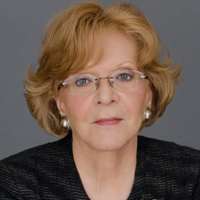Since it was founded 37 years ago, the MacArthur Foundation has been steadfast in its commitment to address the most serious issues that confront Chicago, our home city. We have pursued our mission here through the work and accomplishments of those who use our resources—more than 1,000 grantees and recipients of impact investments whose work makes a difference in our communities.
Although our mission connects us to all corners of the globe, MacArthur has provided more funds to Chicago than to any other place in the world. Since 1979, we have invested $1.1 billion here through grants and impact investments, with a special focus on the city’s neighborhoods where economic disparity, racial inequality, violence, and inequitable access to opportunity persist.
It is important to us—and to our grantees—to ensure an accurate understanding of our work and mission. I described some of the projects and programs that have underscored our commitment to Chicago in a recent commentary published in Crain’s Chicago Business. For example, $60 million in funding from MacArthur helped LISC Chicago’s New Communities Program leverage an additional $680 million to improve the quality of life in 16 low-income historically African-American and Latino neighborhoods. And when Second Federal Savings failed, a $15 million impact investment enabled Self-Help Federal Credit Union to work with The Resurrection Project to keep open an historic neighborhood financial institution with deep roots in immigrant communities. Second Federal continues to provide mortgages and credit to community residents today.
Among many other initiatives, the Foundation has supported efforts to reduce gun violence in Chicago through evaluations that test the effectiveness of promising strategies to prevent violence among at-risk, middle-grade youths. Most recently, we partnered with other local foundations to support the activities of the Police Accountability Task Force to ensure it had the necessary independence to provide a thorough and candid report.
We recognize that our city is facing an urgent need for further change and meaningful progress, including on such critical issues as youth unemployment, violence, and police-community relations. We are engaged in a series of discussions with community and civic leaders and other donors as we continue to build on our partnerships with nonprofit, business, civic, philanthropic, and government leaders.
In the coming weeks and months, as part of our effort to mobilize action around initiatives that are working, we will use our website to highlight the stories and successes of problem solvers—our grantees and recipients of impact investments who are driving real and positive change in Chicago. Organizations like the Chicago Community Loan Fund, led by Calvin Holmes, which is providing needed financing for enterprises and projects in neighborhoods on the city’s South and West sides; Cathy Cohen and the Black Youth Project, which is ensuring that the voices of African-American and Latino youth are heard in public debate; and Eddie Bocanegra and the YMCA’s Urban Warriors program, which pairs combat veterans with youth exposed to violence in some of Chicago's most dangerous neighborhoods.
We are always learning. As conditions and priorities change over time, we continuously evaluate the best ways to support efforts that help neighborhoods and their residents thrive; to produce policy change with the greatest potential for affecting the lives of as many individuals and families as possible; and to bolster the critical infrastructure of community and cultural organizations. We also consider how best to address the failings of key systems that touch the lives of so many people; hold public institutions accountable; assist organizations as they work to increase their impact; support community leaders as they craft effective solutions to critical issues; and enrich the cultural life and diversity of experience for all residents.
This has been a time of significant change for MacArthur. We have reviewed all of our work underway around the world and narrowed the number of issues and programs we address with the aim of achieving greater impact. In the context of many changes, we have affirmed our enduring commitment to Chicago. We also know that, to sustain relevance and legitimacy wherever we work, we must base our actions on a sophisticated and informed understanding of the most effective ways to address today’s opportunities and challenges.
That understanding is seen in work currently underway here in Chicago, and it will be reflected in future grants and investments here, made directly or through intermediaries that extend our resources farther than we can do ourselves.
One example is Benefit Chicago, a new collaboration whose goal is to mobilize and provide $100 million of capital to help create jobs, spur economic development and opportunity, and strengthen our neighborhoods with significant resources that add to existing grant funds and donations. Through low-cost loans and investments, Benefit Chicago will help local nonprofit organizations, businesses, and intermediaries grow, gain financial strength, innovate, and increase their impact. Benefit Chicago responds directly to the significant need for additional impact investment that we uncovered through interviews with more than 60 local leaders, entrepreneurs, and experts, as well as potential investors, and shared in a new report, Bridging the Gap. We are excited that so many organizations have signaled their interest in tapping into this new source of capital and gratified by the rapid, positive response from investors of all types.
Along with so many of our fellow Chicagoans, we will continue to seek solutions to the difficult and complex issues our city faces. We know that challenges of this magnitude have no single solution and that progress will only come through the collaborative work of many—individuals, institutions, foundations, businesses, and government.
We look forward to working together for the future of Chicago.
Sincerely,

Julia Stasch
MacArthur Foundation President




